Certification Course Materials
Please reference the following materials for the PTG Certification Program
Please reference the following materials for the PTG Certification Program
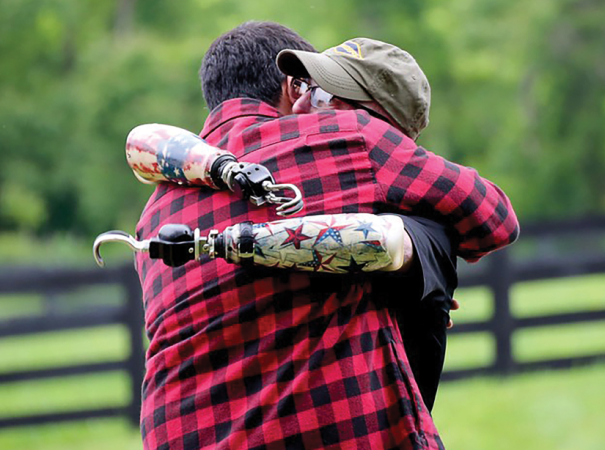
The outcomes are domains of life where people grow.
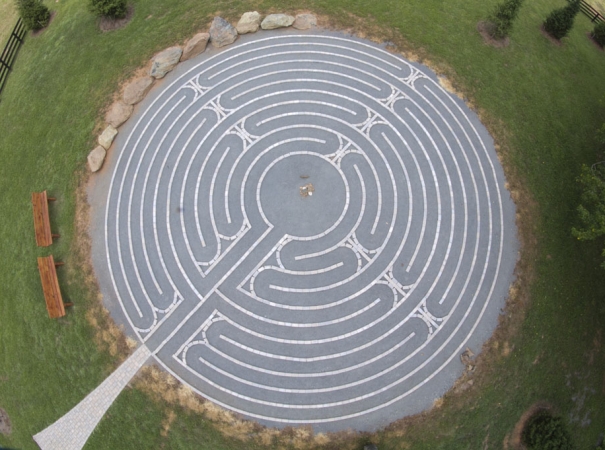
The PTG Process Flowchart illustrates key elements of the PTG process. Download here

The five phases of PTG represent the process we must undertake on the road to PTG.
“The Posttraumatic Growth Workbook: Coming Through Trauma Wiser, and More Resilient “| New Harbinger Publications, Workbook Edition | Moore Bret A., Tedeschi Richard G, (2016)
“Transformed by Trauma: Stories of Posttraumatic Growth” | Tedeschi Richard G, Moore Bret A., Falke Ken, Goldberg Josh | (2020)
“A Preliminary Examination of a Posttraumatic Growth-based Program for Veteran Mental Health “ | Practice Innovations, Vol 6(1), Mar 2021, 42-54 | Moore Bret A., Tedeschi Richard G., Greene Taryn C. (2021)
“Posttraumatic Growth-oriented Peer-based Training Among U.S. Veterans: Evaluation of Post-intervention and Long-term Follow-up Outcomes” Frontiers in Psychology | Rhodes, J. R., Tedeschi, R. G., Moore, B. A., Alldredge, C. T., & Elkins, G. R. (2024)
“Vicarious Posttraumatic Growth in Professionals Exposed to Traumatogenic Material: A Systematic Literature Review. Trauma, Violence & Abuse”, 24(3), 1848–1866. | Tsirimokou, A., Kloess, J. A., & Dhinse, S. K. (2023)
Chapter 4 “Posttraumatic Growth as Process and Outcome” | Posttraumatic Growth: Theory, Research and Applications | Tedeschi, Shakespeare-Finch, Taku and Calhoun (2018)
“Trajectories of Posttraumatic Growth and Associated Characteristics in Women with Breast Cancer” | Annals of Behavioral Medicine | Oxford Academic | Danhauer, S. C., Russell, G., Case, L. D., Sohl, S. J., Tedeschi, R. G., Addington, E. L., Triplett, K., Van Zee, K. J., Naftalis, E. Z., Levine, B., & Avis, N. E. (2015)
“Posttraumatic Growth (PTG) and Posttraumatic Depreciation (PTD) Across Ten Countries: Global Validation of the PTG-PTD Theoretical Model” | ScienceDirect | Taku, K., Tedeschi, R. G., Shakespeare-Finch, J., Krosch, D., David, G., Kehl, D., Grunwald, S., Romeo, A., Di Tella, M., Kamibeppu, K., Soejima, T., Hiraki, K., Volgin, R., Dhakal, S., Zięba, M., Ramos, C., Nunes, R., Leal, I., Gouveia, P., Calhoun, L. G. (2021)
“Posttraumatic Growth, Meaning in Life, and Life Satisfaction in Response to Trauma” | Psychological Trauma: Theory, Research, Practice, and Policy, 4(4), 400–410 | Triplett, K. N., Tedeschi, R. G., Cann, A., Calhoun, L. G., & Reeve, C. L. (2012)
“The Core Beliefs Inventory: A Brief Measure of Disruption in the Assumptive World” | Anxiety, Stress & Coping: An International Journal, 23(1), 19–34 | Cann, A., Calhoun, L. G., Tedeschi, R. G., Kilmer, R. P., Gil-Rivas, V., Vishnevsky, T., & Danhauer, S. C. (2010)
“Assessing Posttraumatic Cognitive Processes: The Event-Related Rumination Inventory” | Anxiety, Stress & Coping: An International Journal, 24(2), 137–156 | Cann, A., Calhoun, L. G., Tedeschi, R. G., Triplett, K. N., Vishnevsky, T., & Lindstrom, C. M. (2011)
“The Posttraumatic Growth Inventory: A Revision Integrating Existential and Spiritual Change” | Journal of Traumatic Stress | Tedeschi, R. G., Cann, A., Taku, K., Senol, D. E., & Calhoun, L. G. (2017)
“Relationships and Responsiveness in the Psychological Treatment of Trauma: The Tragedy of the APA Clinical Practice Guideline” | Psychotherapy, 56(3), 391–399 | Norcross, J. C., & Wampold, B. E. (2019)
“Scoping Review to Evaluate the Effects of Peer Support on the Mental Health of Young Adults” | BMJ Open. 12(8) | Richard J, Rebinsky R, Suresh R, Kubic S, Carter A, Cunningham JEA, Ker A, Williams K, Sorin M. (2022)
“Evidence-Based Practice in Psychology.” | American Psychologist, 61(4), 271–285 | Presidential Task Force on Evidence-Based Practice, American Psychological Association. (2006).
“A Content Analyses of Guided Imagery Scripts: A Strategy for the Development of Cultural Adaptations” | Journal of Clinical Psychology, 67(1), 45-57 | La Roche, Martin J., Cynthia Batista, and Eugene D’Angelo. (2011).
PTG Assessment Tools Overview: Access this link for a listing of the most prominent, empirically based, PTG-related surveys and measurement tools. To request copies of our surveys for nonprofit and academic use, please contact us at institute@bouldercrest.org.
Dr. Rich Tedeschi and Dr. Bret Moore are inviting qualified professionals to author or edit books to be included Routledge book series on Posttraumatic Growth. Click here for more details and to submit an idea or proposal.
Our PTG-based programs for the Veteran, Military, and First Responder Communities are transforming the lives of those in need. Referrals from the mental health community are a significant driver of program attendance. Please review the programs below to assess if you’re working with someone who may benefit from one of our programs.
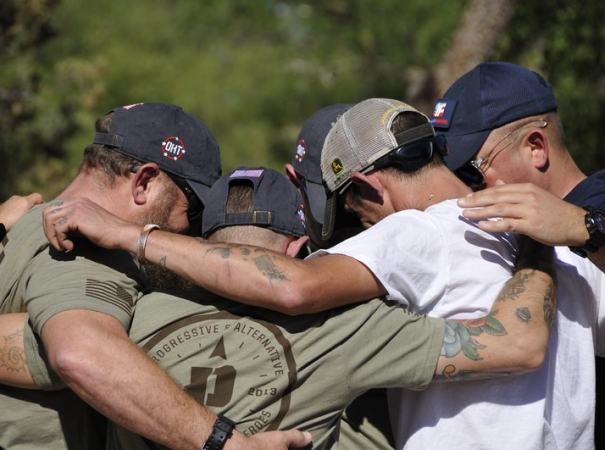
Warrior PATHH is the first training program to teach our nation’s combat veterans to experience lifelong Posttraumatic Growth (PTG). It’s a 90-day, non-pharmacological, peer-delivered training program that begins with a 7-day intensive and immersive initiation. This is followed by 3 months of dedicated support, training, accountability, and connection from a team of trained combat veterans
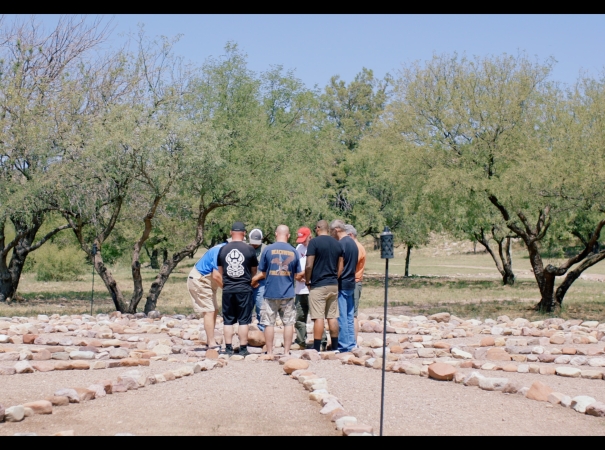
The Struggle Well Experience is an intensive and immersive Posttraumatic Growth-based programs designed specifically for current and former members of the first responder community. This 5-day in-residence program, supported by a purpose-built app and lifelong learning, ensures that first responders can transform struggle into strength and Posttraumatic Growth.
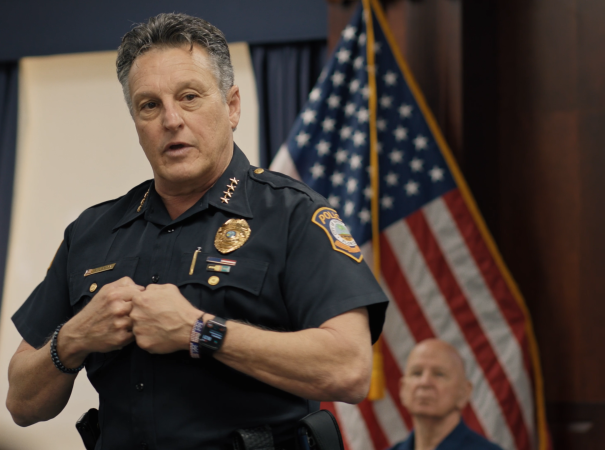
Struggle Well is a prevention-focused program based on the science of Posttraumatic Growth. By partnering with first responder agencies and active serving military units, we’re fundamentally changing the culture from the inside-out. Training is offered in 1-day, 2-day, and 5-day increments.
Your support powers life-changing programs offered at no charge to veterans, military, first responders, and their families. With your help, our Warriors won't just survive — they'll thrive.

We have received your email sign-up. Please tell us more about yourself.